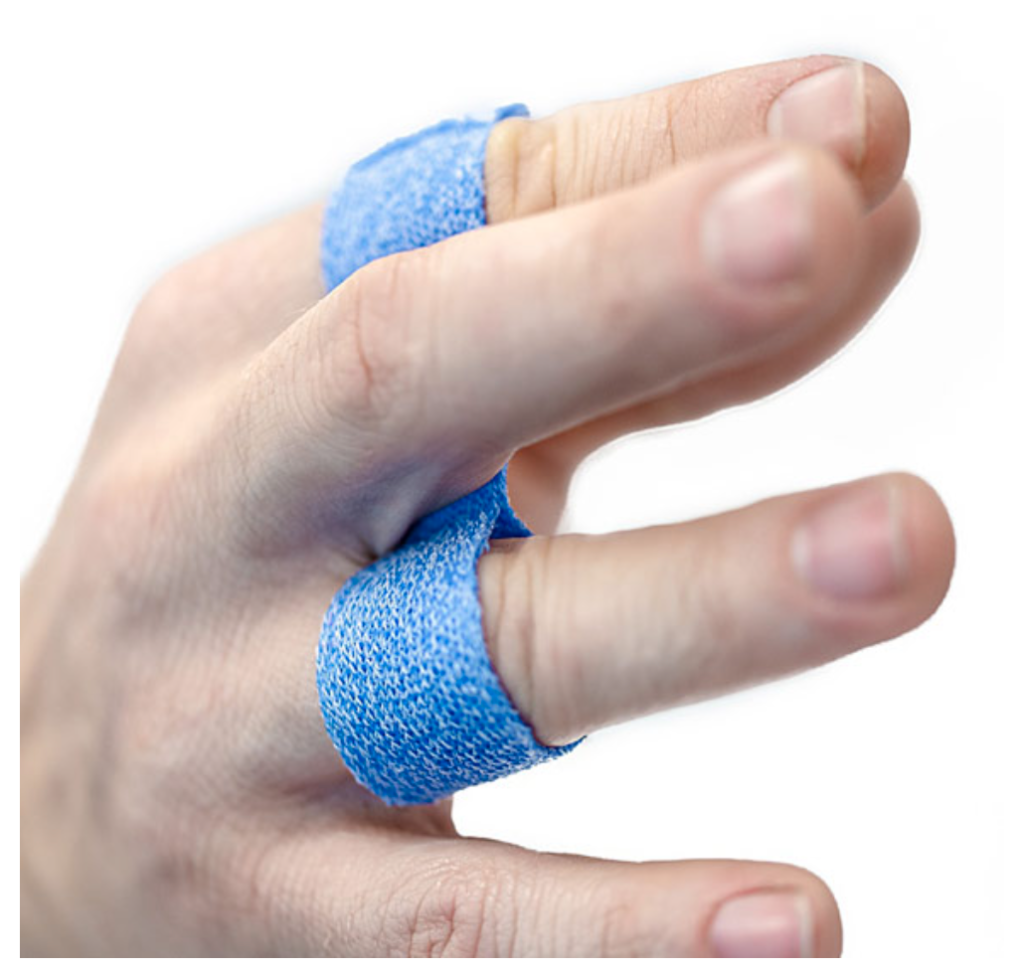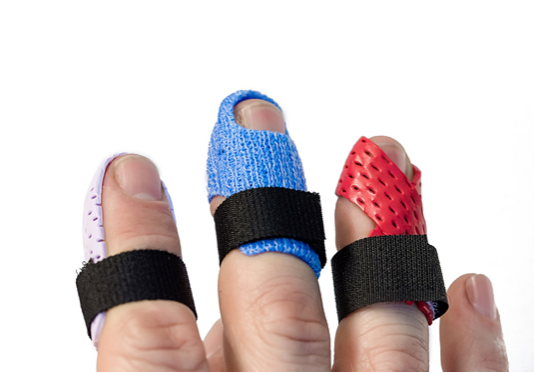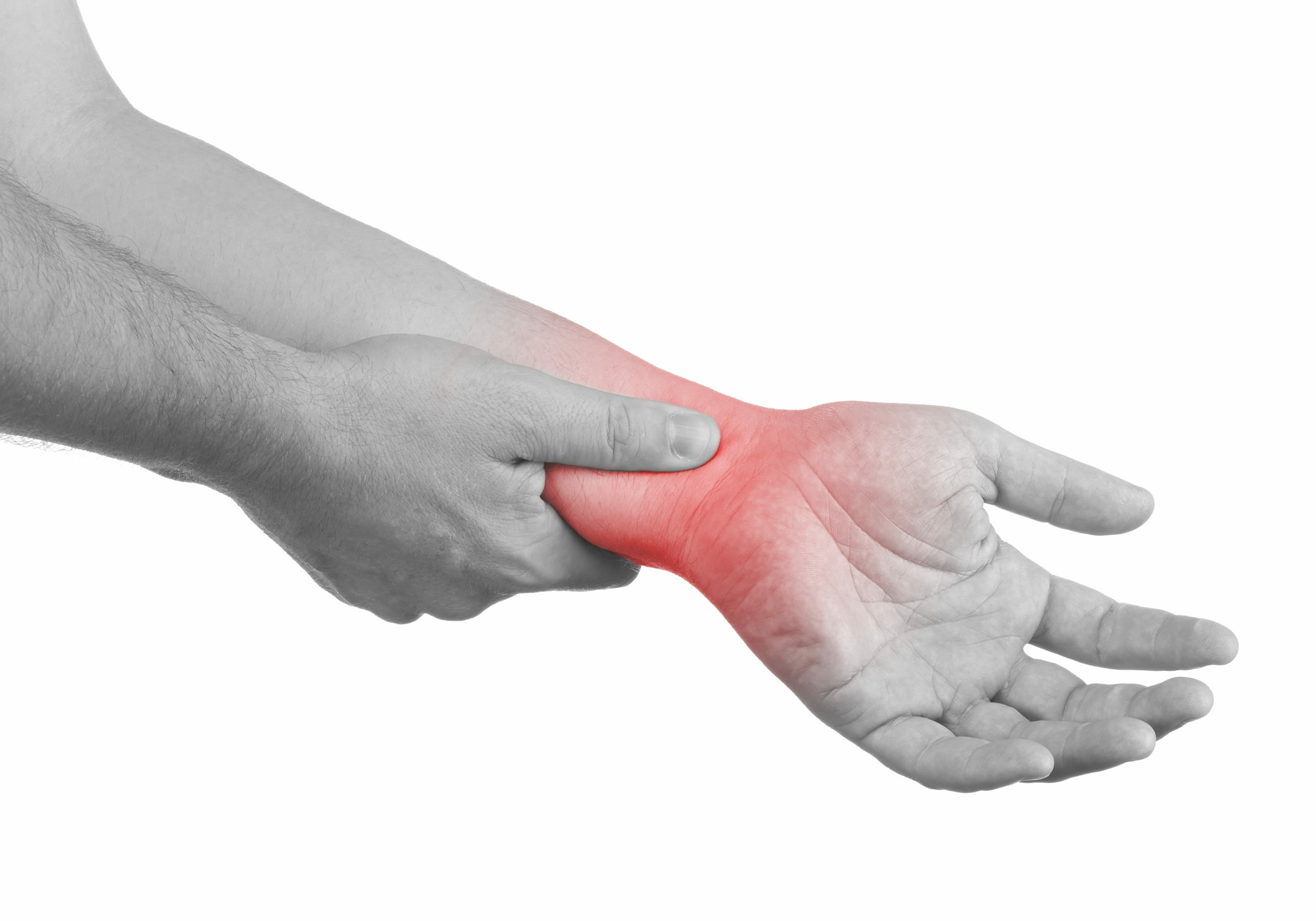Article Review: Relative Motion for Extensor Tendon Repair zone V-VI? Is a night-time resting hand orthosis beneficial?
Filed under Reviews
Hirth, M. J., Hunt, I., Briody, K., Milner, Z., Sleep, K., Chu, A., Donovan, E. & O’Brien, L. (2021). Comparison of two relative motion extension orthotic programs following surgical repair of finger extensor tendons in zones V-VI: A randomized equivalence trial. Journal of Hand Therapy-to be published.

The Skinny: Following a zone V-VI tendon repair, relative motion splint is an effective option in providing adequate protection and preventing tendon rupture/attenuation. There is variability in relative motion splinting approaches, including replacing the relative motion orthosis with a larger orthosis overnight or adding a wrist orthosis. Due to this variability, the authors looked to determine if the splinting regime mattered. The study compared two splinting regimes following an extensor tendon repair in zone V-VI. Group one was a relative motion orthosis alone, and group two was a relative motion orthosis and a night-time orthosis.
In the Weeds: The study compared two splinting regimes (relative extension splint) following an extensor tendon repair in zone V-VI. Group one was a relative motion orthosis alone, and group two was a relative motion orthosis and a night-time orthosis following. They termed the groups as follows RME and wrist orthoses worn at the same times are terms ‘RME plus,’ and without a wrist, orthosis was termed‘ RME only.’ A total of 32 subjected were enrolled in the study and 17 were randomized into the RME and night-time splinting group, and 15 were enrolled in the RME at all times groups.
Outcomes measures included a range of motion, grip strength, return to work, pain, hand function, satisfaction, and orthotic adherence.
Bringing it Home: Both interventions produced similar outcomes and with no increase in rupture rate and similar results in the outcome measures.
Rating: The authors recommenced tailoring therapy interventions based on patient needs rather than being protocol-based. The study limitations include a small sample size. Also, it was a multisite study, so difficult to control for variations in therapeutic approaches and surgical techniques. A night-time resting hand orthosis may provide more comfort for patients.
More To Read
Arthrodesis vs Arthroplasty in Thumb CMC OA
Piacenza A, Vittonetto D, Rossello MI, Testa M. Arthrodesis Versus Arthroplasty in Thumb Carpometacarpal Osteoarthritis: Impact on Maximal Voluntary Force, Endurance, and Accuracy of Pinch. J Hand Surg Am. 2021 May 24:S0363-5023(21)00199-4. doi: 10.1016/j.jhsa.2021.03.023. Epub ahead of print. PMID: 34045112. The Skinny: This was a retrospective study based on a convenience sample of individuals who…
Read More5+ Common Mallet Finger Splints
Finger orthoses can be tough, and the mallet finger orthosis is no exception. The protocol for 15 degrees of DIP extension with mallet fingers is tricky to manage while making a splint. Small splints on little fingers are also tricky to get sized just right and with strapping in the right places. Ask any experienced…
Read MoreManagement of a TFCC Injury in Hand Therapy
By: Taylor Volentine The wrist is composed of very complex joints that assists with movement in individuals of all ages and abilities. For instance, an active individual who participates in sports such as tennis, football, or gymnastics may increase the probability for wrist complications and injury (Morrison, 2019). Individuals with repetitive trauma from work or…
Read MoreSign-up to Get Updates Straight to Your Inbox!
Sign up with us and we will send you regular blog posts on everything hand therapy, notices every time we upload new videos and tutorials, along with handout, protocols, and other useful information.





